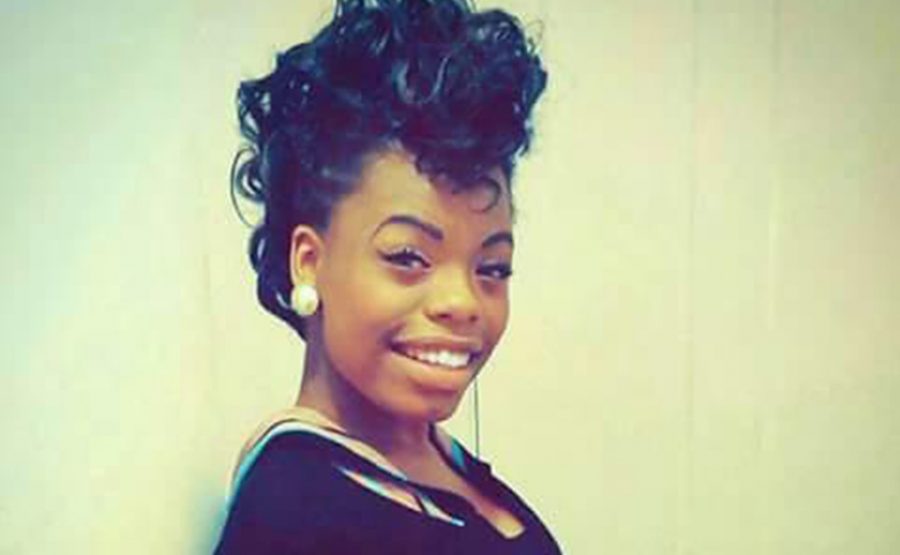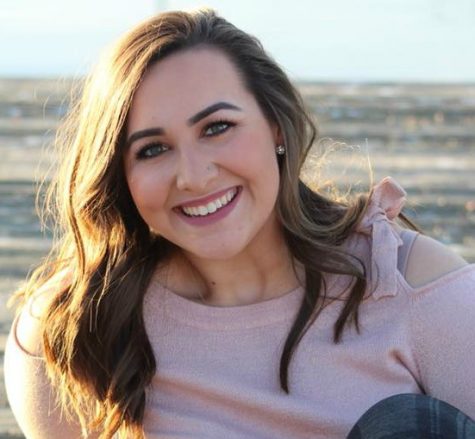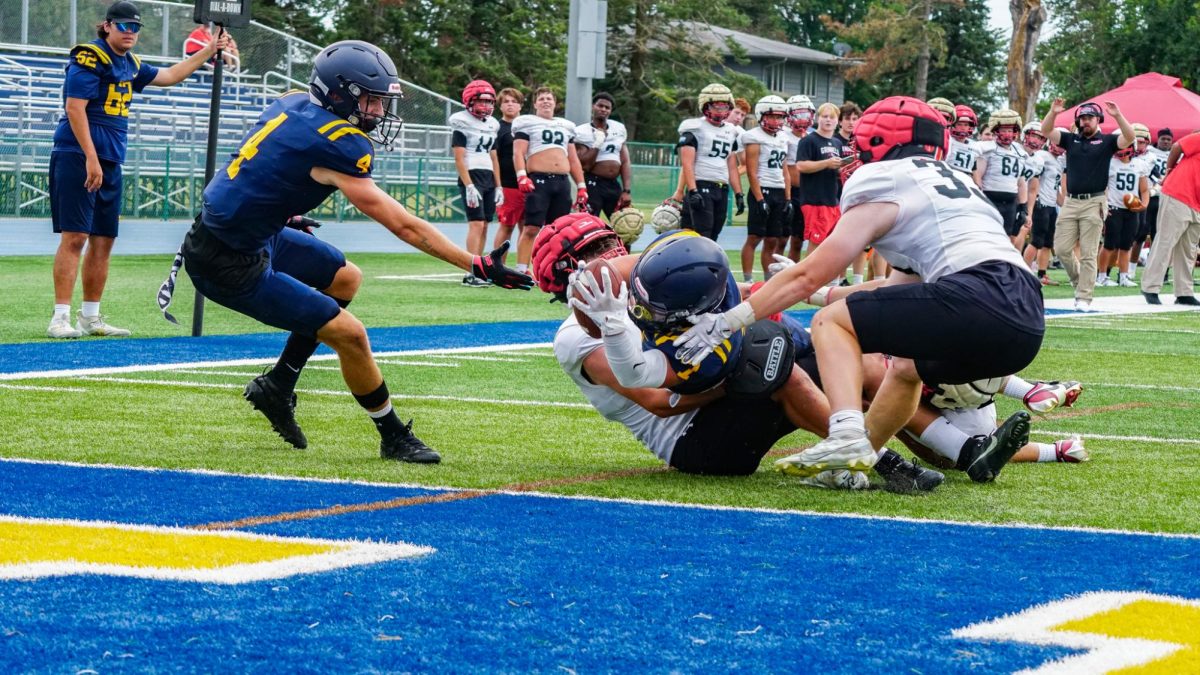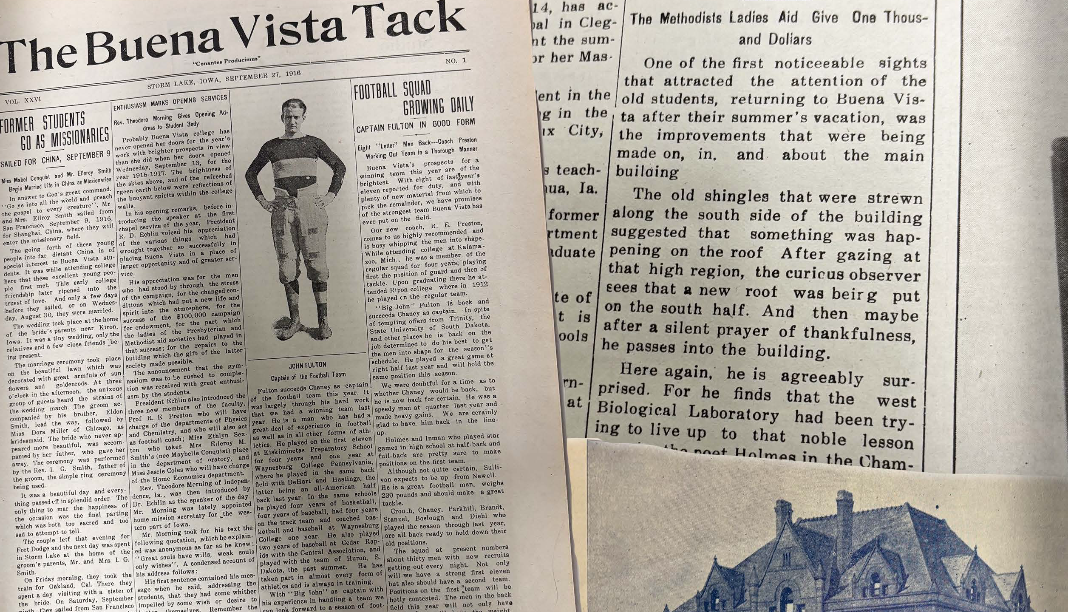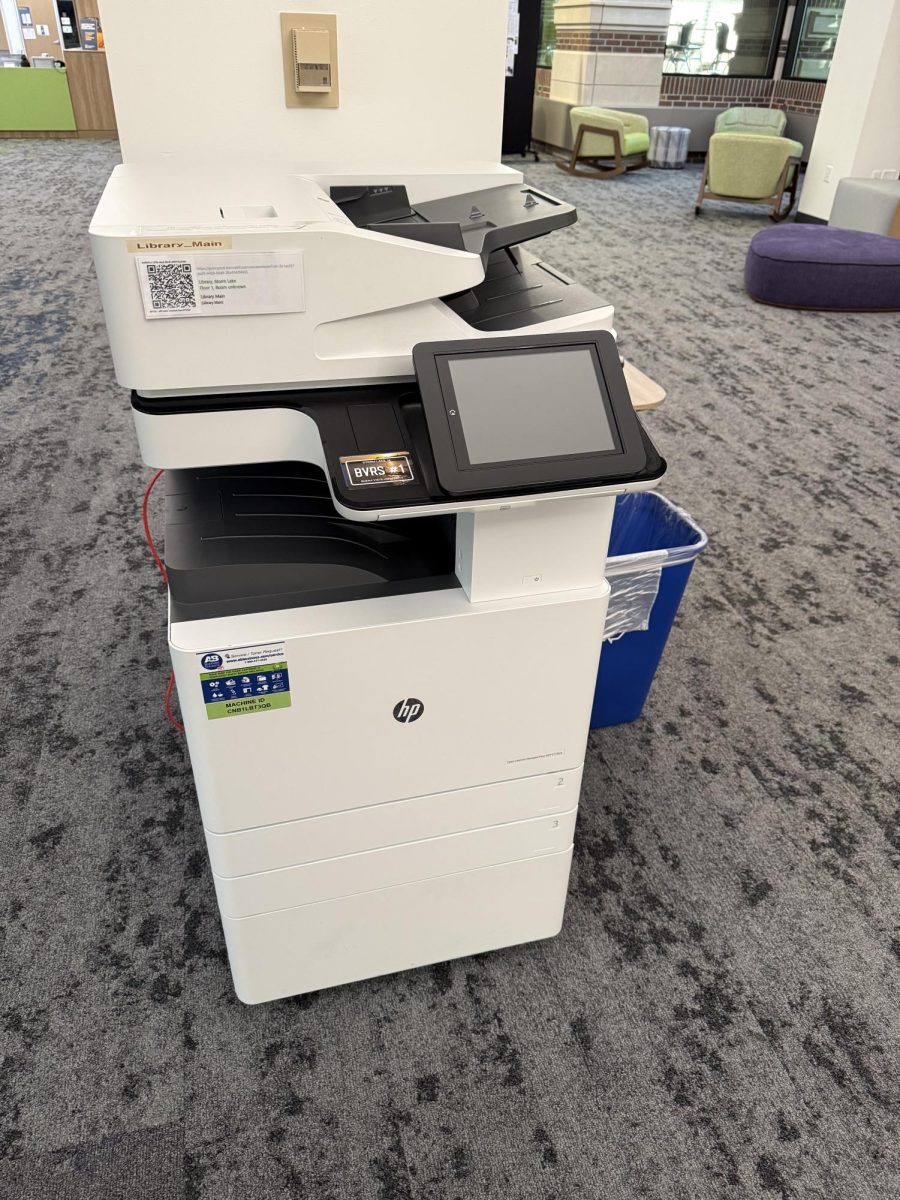“Walking Miracle” runs again
April 5, 2016
“I was sent to get an immediate x-ray, and they had found scoliosis in my back and arthritis in my hips, but that wasn’t the only thing wrong with me,” Ross said.
Getting ready to head to basic training for the United States National Guard, 17-year-old Abigail Ross, who is now a first-year student at Buena Vista University, was in the process of her pre-training physical, when the military doctor noticed abnormalities in Ross’s spine and hips.
———
Two years earlier, Ross remembers hundreds of people were in the crowds, cheering and screaming for their teams with spirit. Ross, then a high school sophomore, had adrenaline running through her body as she prepared for her 800-meter run.
Standing on the third lane of the track feeling positive and strong, Ross was ready to race. Slowly breathing in and out before the gun shot, she felt time seem to stop. Then, suddenly, they were off. Ross pushed herself to finish the race. She describes herself as a “fighter,” and in that moment, she was fighting for her team. After the first lap, she felt an excruciating pain in her hips.
“I assumed the pain was because I was pushing myself so hard,” Ross said.
On the last lap of the race, Ross felt the pain getting worse, and after passing the finish line, she collapsed.
Ross was immediately sent to Mercy Hospital in Council Bluffs to diagnose the pain. The results she got back were not what she was expecting. She didn’t think there was anything seriously wrong with her body, but little did she know, the pain would only get worse.
Ross says she’s always had a strong mind set, and she never gave up even when the things got rough. The doctors told her that was starting to tear her ligaments in her hips, and continuing sports would only make matters worse. As challenging as it was for Ross, she was limited in the sports she able to participate in for two weeks.
“I felt restricted by only doing a certain amount of things,” Ross said.
As an active athlete, Ross said that limiting her physical activity was like taking away her ability to breathe. The only way to continue was to get better, and Ross knew if she ever wanted to run again, she had to take it easy. After two weeks of pain and suffering, Ross was able to run again.
———
At the beginning of her junior year of high school, Ross was still going strong, with nothing stopping her from being an athlete. After practices, Ross started to get small pains in her hips again, some popping and discomfort while she was running/walking. Ross always pushed herself farther than she probably should have, but that’s the dedication she had. However, Ross said continuing sports after the collapse was probably the biggest mistake she ever made.
“I didn’t think anything was serious. I had a long day of running and thought my body was just tired and sore,” Ross said.
However, as Ross’s junior year was coming to an end, when she had thoughts of joining the United States National Guard. It was the summer after her junior year, when Ross was getting ready for basic training. At the end of her process, was that physical.
It was the final test to determine whether or not she would be eligible to serve in the National Guard. While sitting in the waiting area, Ross was excited. When the military doctor came back into the waiting area, Ross was next. Ross passed the tests for heart rate, weight limit, blood pressure, and many other things, but she had one test left to pass—the x-ray. Unfortunately, during her x-ray the doctor noticed an unusual shape in her spine and hips. Ross was advised to get an immediate MRI. The next few hours waiting for the results, were the most worrisome hours of Ross’s life.
When the doctor finally got the results, he informed her and her father to go back up to the hospital for a face-to-face consultation. She and her father sat in a small room, their two chairs against the wall, waiting for the door in front of them to open. Shaking with nerves, she knew the results would determine whether or not she would be able to do what she loved for the rest of her life.
Holding her dad’s hand and praying to God was her only comfort. As soon as the doctor entered the room, a waterfall of tears rushed down Ross’s face.
“In that moment, the doctor knew the results I wanted, but the look he gave me was definitely the opposite,” Ross said.
Amazed that she was even standing, the doctors called Ross “a walking miracle.”
The bad news was, Ross had torn both of her hip labrums, and the doctor desperately urged her to have emergency surgery.
“I didn’t want to do the surgery knowing that it could risk my athletic ability, but without the surgery, I would suffer serious consequences in my future,” Ross said.
Ross worked hard to get where she was and the change was devastating for her to accept, but she kept moving forward. Ross had a long recovery ahead of her, getting two hip surgeries in less than a year can be dangerous, but she wasn’t going to stop until she could run again.
One surgery took eight months to heal, but there wasn’t enough time to wait for the full eight months to do the second hip. Risking another torn ligament in her recovering hip, Ross went in for her second surgery.
Ross was in her senior year of high school and her future was something to look forward to. She started to think about college and which one was going to be the best option for her. She knew she had to pick a school, but first she had to finish her senior year. She went to prom on crutches. She had to have someone helping her get her food. Even using the restroom was difficult for her.
“I was disappointed more than angry. If I couldn’t contribute with my body, I would contribute with my voice,” Ross said.
Ross became everyone’s number one fan, and she supported her teammates on the sidelines. If she couldn’t be cheered on to run faster, she would cheer others on.
After about ten months, Ross recovered and was able to walk across the stage on graduation day to receive her diploma. After graduation, she decided to attend BVU to continue her life. Ross never expected to be held back by her own body, but even after the two hip surgeries, she felt unstoppable.
It was 6:00 in the morning. The sun was rising. She was ready to go on her first run since the surgeries. Ross opened the door to go outside. Stepping onto the hard pavement in her tennis shoes, she was ready to run for what felt like the first time in years.
“I was extremely ecstatic being able to say goodbye to the crutches and hello to my tennis shoes,” Ross said.
Photo courtesy of Abigail Ross



